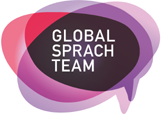Just a few weeks into the new year, it’s clear that the coronavirus pandemic is going to remain a dominant topic in all our lives for some time to come. We’ve already detailed how the pandemic has affected daily life and work at GST. But as a translation agency we’ve also had no shortage of pandemic-related translation projects over the last nine months. From education to science and transport, few areas remained untouched. Keep reading to find out what the trends were and what we hope to be translating in the near future.
Adaptation phase
During the initial lockdown in spring, the optimistic assumption was that after a brief and harsh interruption to normality, life as we knew it would soon return. But until then, we thought, a few changes would be necessary.
Transport companies swiftly issued guidelines about face coverings and social distancing. Museums advised visitors to book tours in advance and warned that numbers would be severely limited. Educational institutions outlined plans to temporarily shift learning online.
But there was still optimism: universities drew up guidelines to ensure that staff as well as international students knew what to do – wash hands, maintain distance, follow a one-way route in corridors – once they returned to regular learning. Which couldn’t be far off, right?
Going digital
Once it became clear that the pandemic was going to be a long slog rather than a sprint, many of our covid-related translations began to focus on digital topics. How were adult education centres and vocational education and training reacting to the challenge? What could be done to ensure that seniors and people in risk groups were still able to participate in society despite potential barriers to mobility and technological use? And what about people in precarious employment who provide the kind of delivery services for which the pandemic has created such demand?
Processes already underway were suddenly accelerating, while new solutions also had to be found. Meanwhile, requests for GST to provide interpreting services at conferences started to return. Unsurprisingly, these were very digital affairs.
Where are we now?
At regular intervals over the last year, we’ve translated scientific advisory papers aimed at the highest levels of government. While reflecting the evolving understanding of the pandemic, they also show just how quickly things can change.
One particular job stands out: in early December we translated a paper which examined and praised Ireland’s strict November lockdown as a highly effective and necessary way to reduce infection figures as winter and the end of year festivities approached, and pleaded for a similar strategy in Germany.
The German government followed the advice, and as an Irish citizen I was pleased to see my country held up as an example to follow.
Unfortunately, at the same time, the Irish government was relaxing restrictions again in a bid to provide the country with a “meaningful Christmas”, just as new, particularly transmissible strains of the virus were spreading. The result: by the start of January Ireland had gone from having one of the lowest infection rates in Europe to having the highest in the world and was back into a strict lockdown.
It encapsulated the entire up-and-down nature of the pandemic over the past year – and is as good a reason as any to illustrate why translations need to be widely read and their lessons learned!
Looking ahead
While 2021 may have begun under a virus-shaped cloud, the current phase of restrictions coupled with the vaccine rollout offers some hope that the coming months will finally see a brighter horizon.
Although we at GST don’t expect to be translating public health announcements urging citizens to rip off their masks and embrace strangers any time soon, we do look forward to material about successful, blended learning and work environments, improved health and employment trends, and the gradual resumption of cultural, leisure, and economic activities that involve larger gatherings of people.
And, with any luck, a return to interpreting at in-person conferences.
But until then, we hope all our clients and colleagues stay healthy!
(O.M., 2021)
How did the coronavirus affect your business? What trends do you anticipate in 2021? Let us know on Twitter!




